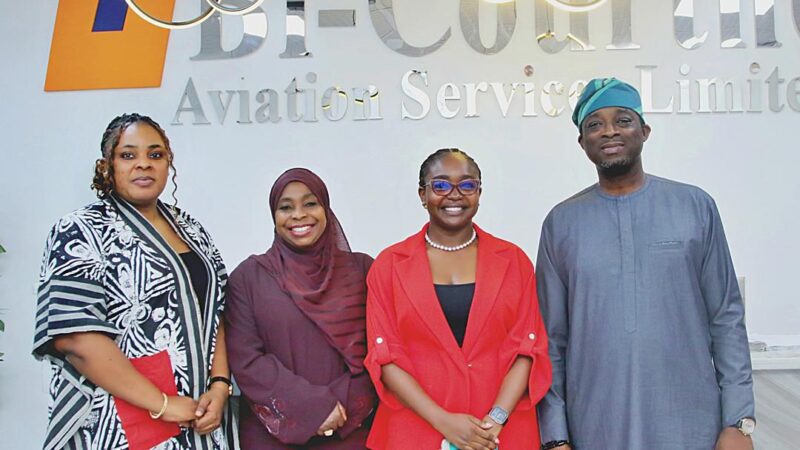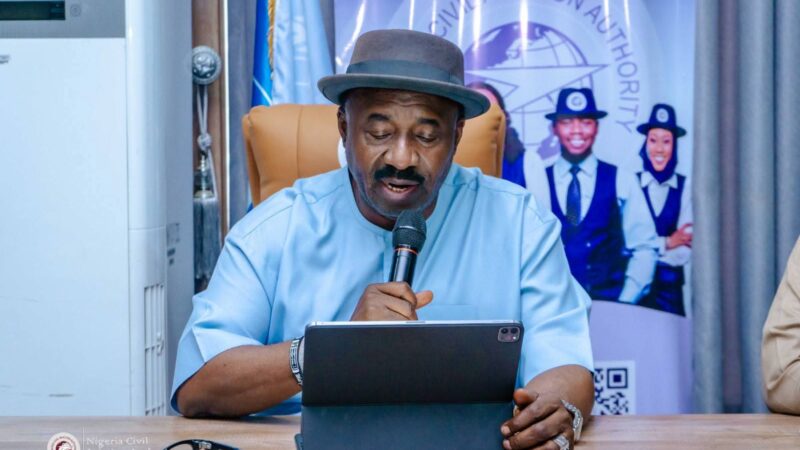Changing Strategies in Nigeria’s Aviation Sector: Appointments should be done on merit, not patronage, stakeholders warn

Nigeria’s aviation sector has been encumbered by an existential crisis characterised by a lack of policy thrust, poor infrastructure, weak capacity of airlines and double-dealing in organisational appointments, stakeholders have observed.
Dissecting these issues at the 27th Annual Conference of the League of Airport and Aviation Correspondents held in Lagos recently, the stakeholders observed that for the industry to grow, appointments for managerial positions must be done by merit so as to allow people with requisite skill sets run the industry.
In a communique issued after the conference, the stakeholders noted that the industry has been in the doldrums because appointments into key positions are done on the basis of patronage, which is not healthy for business to thrive.
In line with the theme of the conference – Aviation Industry: Changing Times, Changing Strategies – the stakeholders held that the first step the government, agencies, airline operators and allied organisations in the industry must take is to be proactive by appointing the right people with the expertise of making the right decisions in line with established standards to drive the industry forward.
They explained that in being proactive, the airlines and agencies must invest in regular training of their personnel in order to move along with global trends in the sector.
According to them, changing times requires manpower development across the supply chain of air transport; human capital and its development should entail having the right people, right equipment, good knowledge of usage and proper programme to support their growth.
Other highlights of the communique indicate that the stakeholders also observed that the aviation industry in Nigeria is lagging through poor airport infrastructure, chaotic airlines’ operations, and add-on effects on dissatisfied travelling public.
They reckoned that the changing times would require good preparation that is equipped with the right policies, technology, financing, and efficient operations to cope with the market realities, profitability and ensure sustainability.
According to them, profitability of the airlines depends largely on their capacity, which is currently below par because the environment, where they operate, is bloated with wrong workforce, poor infrastructure, unfriendly and merely reactive policies that hinder their profitability.
The communique recommended that “the industry must restructure to align with modern demands and growth in infrastructure, skills-set, technology, and innovation.
“The Civil Aviation Authority (CAA) as a regulatory agency, should (proactively) review policies that are detrimental to the airlines and the industry in general to allow for a national air connectivity agenda that licences operators at three tiers – small, medium, and major airlines (for regional and international operations). This will open the niche market in accordance with operator’s strength and for-profit optimisation.
“Similarly, there is a need to review the albatross of multiple taxation and charges on airlines; the requirement for new startups to present six aircraft as a condition for AOC should be expunged from the civil regulation.
“Aviation agencies should desist from profit motives that circle back to hurt airlines’ revenue through multiple taxation and charges, and focus on exercising their statutory mandate.
“The industry needs people that understand what policies are and their implementation. Ministers and heads of agencies must desist from allocating positions based on patronage.
“Investment in knowledge and capacity building should be paramount. Training is no favours to the employees, rather, an investment in the health of the industry. Companies must go beyond mere regulatory compliance to put in place a robust process that would chaperon an effective and non-chaotic change of leadership or ownership in the future.
“The travelling public remains the king of the aviation business and must be treated accordingly. There is the need for all stakeholders including the service providers (agencies); the operators (airlines, ground handlers, catering companies among others) to synergise to up the ante on consumer protection and satisfaction. All stakeholders exist to serve the consumers.
“Operators, especially airlines, must keep innovating and cooperate through alliances. Only through partnership can they balance revenue with the cost of operation, have better connectivity, and aim at profitability. For sustainability, there must be accountability and consequences of actions or inactions.
“Government should desist from approving only unprofitable routes (Red Routes) to Nigerian airlines and should have confidence in the airlines. The ‘Red Routes’ drain the resources and businesses of the airlines. Participants also advised the indigenous airlines to reject these ‘Red Routes’ and desist from the ‘can do it’ attitude.
“The Civil Aviation master plan should be fully implemented by the government and its agencies. This will lead to the elevation of the civil aviation industry in Nigeria.
“Participants also called for the review of the Nigeria Civil Aviation Regulations (Nig.CARs), which stipulates a minimum of six aircraft for startup airlines before they are issued Air Operator’s Certificates (AOCs).”
Some of the stakeholders at the event, which was well-attended physically and virtually, under the chairmanship of the Director-General of Nigeria Meteorological Agency, Prof. Mansur Matazu include: Roland Iyayi, Chief Executive Officer of TopBrass Aviation, Dr. Gbenga Olowo, former President of Aviation Round Table, Engr. Akin Olateru, Director-General of the Nigerian Safety Investigation Bureau.
Other stakeholders include: Group Captain John Ojikutu Rtd, Captain Musa Nuhu, Director-General, Civil Aviation Authority, Mr Emmanuel Meribole, Permanent Secretar, Federal Ministry of Aviation and Aerospace, Mr Tayib Adetunji Odunowo, Managing Director, Nigerian Airspace Management Agency, Mr Kabir Mohammed, Managing Director, Federal Airports Authority of Nigeria (represented), among others.







